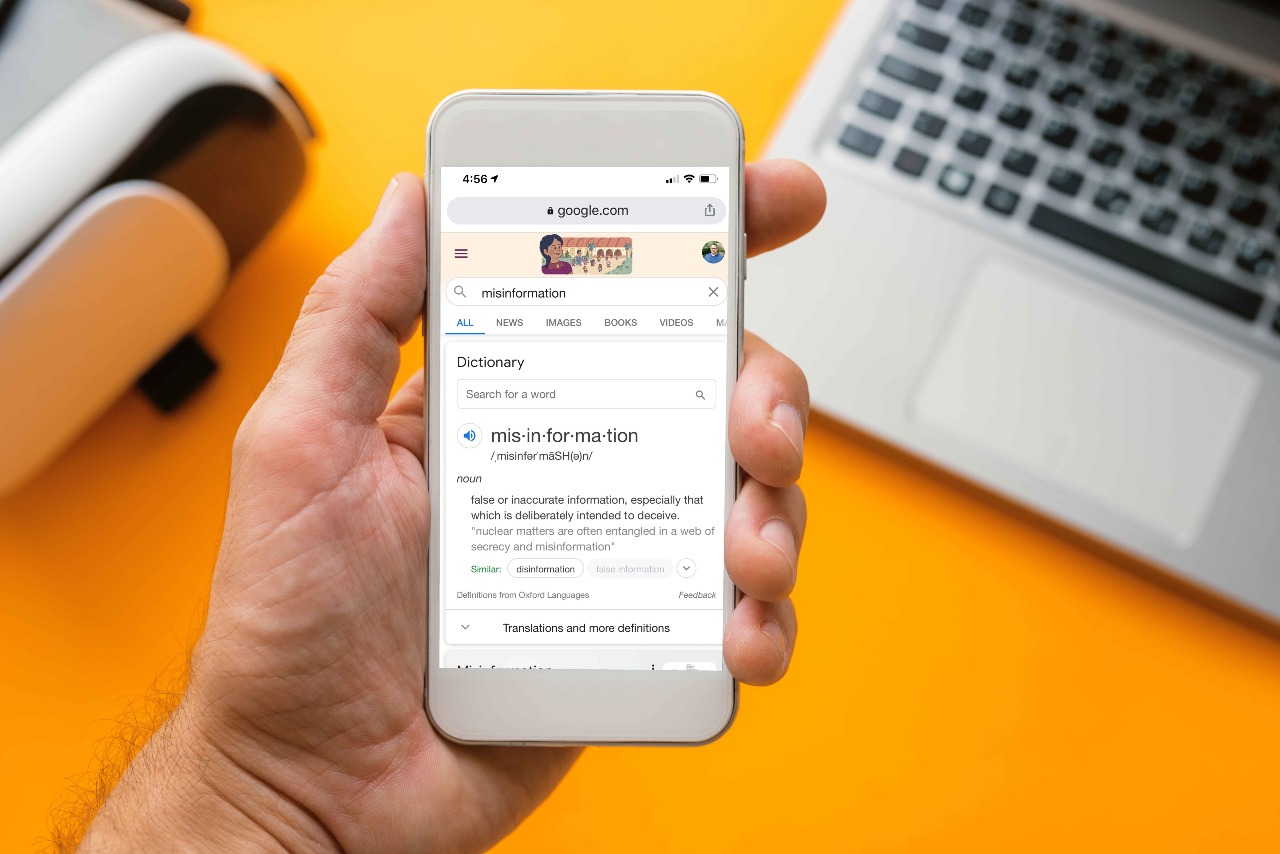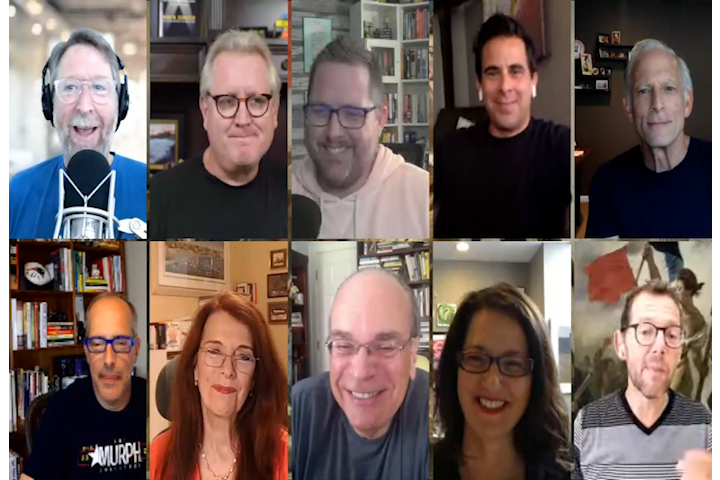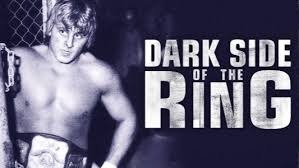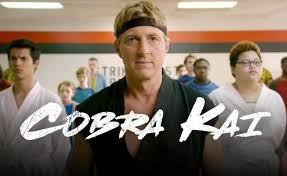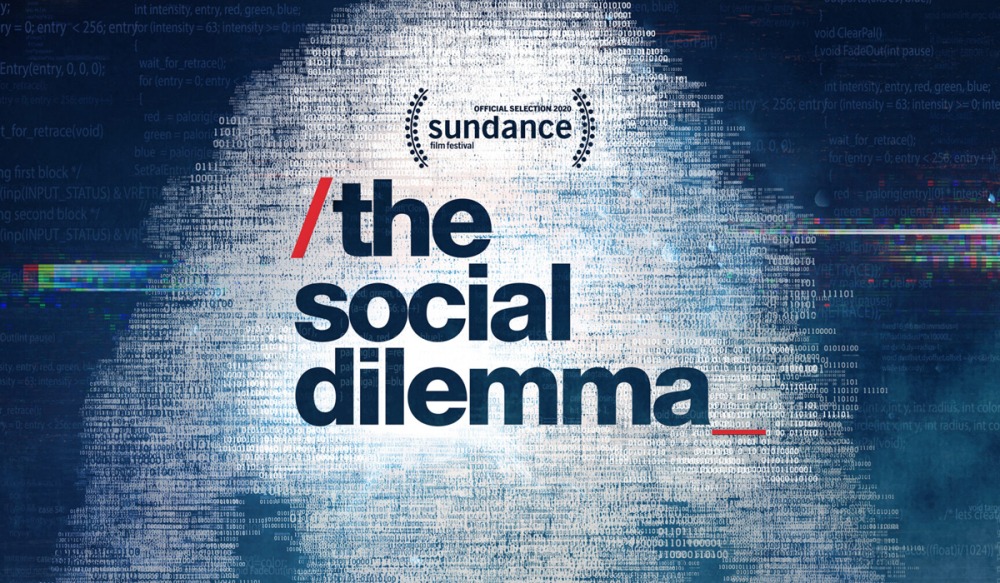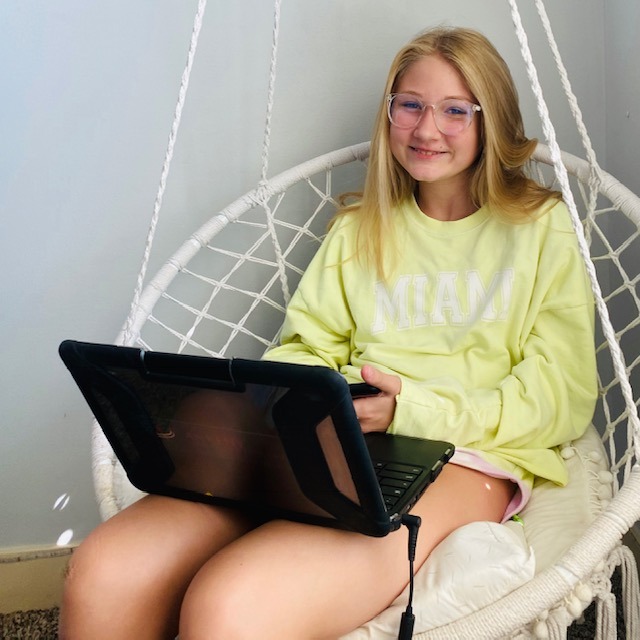| |
|
Here's what I've been thinking about... |
Hey Seth - In an attempt to spend less time on Facebook (myself) and to hopefully help others do the same, I've decided to take all of the stuff I'd usually post there and put it in a newsletter. Have questions about something? Get at me! |
Notes: (1) This is my first time using sender.net, so bear with me. I wanted to try other solutions besides Mailchimp, so I'm starting here. (2) I will still post these to Facebook, but it's unlikely that you will see it because of the algorithms disdain for outside links. |
This occupies a lot of my brain space, and if you follow me online you've seen me talk about it before. I've been on a bit of a quixotic crusade to promote media literacy for what feels like years now. That's not going to change.
Every day we see stories that are blatantly false promoted by nefarious characters, and we're ill equipped to handle them. There's always been misinformation yes, but conspiracy theories used to "stay in their lane" and few took them seriously, even though we're hard-wired to be attracted to them.
No one can be an expert in everything. In fact, few of us are experts in anything at all. So we need trusted sources of information for the things we are too busy, or too lazy to spend time on. In the last decade, people have given up hope on so many of the institutions that used to filter out nonsense. Instead, were stuck in media bubbles that feed us what we want to hear, just like social media algorithms. Most of these institutions are driven by ad dollars, which they're given in exchange for your attention. And the way to get your attention is to make EVERYTHING emotionally charged. Truth and facts are sidelined when attention is the goal. And anymore, attention is always the goal.
On top of that, we've slowly receded from our communities where we used to have conversation with "the others" in-person, which has been exacerbated by COVID. We also allow social platform algorithms to segment us without even realizing it (see The Social Dilemma below). Social platforms choose what we see, rather than let us choose for ourselves. We are products of the algorithms forced upon us. And from within our bubbles, we can find neither truth from real experts nor empathy for those that are unlike us.
If we won't change our media appetites or force changes those advertising mechanisms of our culture, our only hope is to adapt and learn how to better identify misinformation. Like, for me, I try to read the book Nonsense: Red Herrings, Straw Men and Sacred Cows: How We Abuse Logic in Our Everyday Language at least once a year. It breaks down almost all of the ways people misuse information through discourse to break your logic and trick you into believing something. If you want put your BS detector in overdrive, this book is like nitrous-oxide in an engine. I actually have an extra copy I'd love to lend you if you want it. I'm sure I'll talk more about it in the future and get into specifics.
Though if you're willing, it's also worth adjusting your media diet. Something you can do is visit this chart, and find a couple of sources that don't align with your beliefs and follow them on Facebook. Just see what others are seeing. I recommending grabbing one from less biased sources, and one of the more biased sources. And if you'll notice, both Fox News and MSNBC are both more opinion than they are actual factual news. It's also worth auditing your current media portfolio to see where the sources you follow land on here.
Anyway, issues like this is what I actively spend time on with my kids. It's as important of skill to learn as anything else they might in school, and it takes a ton of practice to get "good" at it. If you want to get better just by watching some simple videos with your kids, I'd also recommend Crash Course's Media Literacy playlist. It's only 13 videos, and less than 2 hours total. Super easy to watch one a week and talk about as a family.
Related - How QAnon Uses Universally Sympathetic Causes to Trick You:
Evangelicals are looking for answers online. They’re finding QAnon instead. - MIT Technology Review
From the article: "This is why social media makes such a great mission field for QAnon. Facebook and Twitter give QAnon evangelists the easiest and best chance of reaching new people with their message (or more mainstream-friendly versions of it)—powered by the platforms’ recommendation algorithms, which are designed to show people things they’re likely to have an affinity for."
How #SaveTheChildren is pulling American moms into QAnon - Vox
If you ask anyone if sex trafficking and pedophilia should be stopped, they're going to say yes. It's that universality that QAnon likes to ground is chaos and misinformation in.
"Because it sounds so innocuous, and in fact [is] a valiant goal to aspire to, people who otherwise wouldn’t be looking for QAnon-related material could be exposed to those materials,” Phillips said. From there, because of the sheer volume of QAnon posts out there, and the way algorithms like those used by Google tend to direct people to more and more related content online, “people could get sucked into a rabbit hole before they even realize that that’s what’s happening,” she said."
"Obviously, conspiracy theories like Pizzagate paint a false picture of trafficking in America — Hillary Clinton is not using a DC pizza restaurant to traffic kids. But even more innocuous #SaveTheChildren posts can contain misinformation, like the idea that “300,000 American children are lured into the commercial sex trade every year,” that there are more missing children in the US than there have been deaths from Covid-19 worldwide, or that wearing a mask as a coronavirus precaution makes children more vulnerable to trafficking. All these claims are false."
|
Guest - CoronaTV, Joseph Jaffe |
I've been lucky to get to sit in on a few panels with some amazing marketers, authors, philosophers, and media geniuses over the last few months thanks to Joe Jaffe's CoronaTV. It usually airs at 1pm ET each day, but occasionally has happy hour shows as well. Ironically, we rarely talk about marketing, and focus more on big picture topics like empathy, leadership, honesty, credibility, trust, and hope. It's good times. |
Show - Dark Side of the Ring (Hulu) |
I happened across it on Hulu one night browsing and as I do with most things pro-wrestling related I checked to see if it had any mentions of Bret Hart. Dark Side of the Ring did, and so I took the bait. And wow, was I hooked. I burned through both seasons pretty quickly, over a few days maybe? I especially recommended this to all of my high school buddies in the Fantasy Wrestling Coalition.
Most people aren't Bret obsessed like I am though, so for other fans of wrestling from the late 80s, 90s, and early 2000s there are some amazing stories here. So many of these characters and stories remind me of being in elementary school and spending Sunday nights at Joe Cloyd's house watching pay-per-view events with him and his dad Ron. I swear that I only know most of these old wrestlers names and stories because of Ron.
(Side note: Ron gave me my first ever nickname, Homer. Not because of the Simpsons of anything like that, but because I hit a home run my last at-bat of little league baseball. I still run into him at my home town's fall festival, and he still calls me Homer, and few things in the world still feel as good as that.)
Anyway, here are the standout episodes:
- The Killing of Bruiser Brody - I had no idea the circumstances around his death, a case of wrestling story-lines being taken too seriously...
-
The Last of the Von Erichs - This is just a terribly sad story and reminder of their downfall.
-
The Match Made in Heaven - The story of Macho Man and Elizabeth... where wrestling storyline becomes reality.
-
The Fabulous Moolah - Most people my age know Moolah as a crazy old lady still doing weird stuff in the ring in the 90s, but there are some pretty unsettling accusations here from her past.
- The Life and Crimes of New Jack - This one is funny, and absolutely not funny as the lines between real and fake again blend a little too much here.
-
The Herb Abrams and UHF Story - Herb tried to take on the WWF, and... it didn't go well.
A recurring theme throughout the series is that when you live in a world of gas-lighting, reality distortions permeate everywhere. Fitting for the modern age really...
Oh, a final thought... Jim Cornett and Vince Russo still really really REALLY hate each other. Never thought I'd say this, but I'm with Jim Cornett.
|
Show - Cobra Kai (Netflix) |
The series is an extension of the original Karate Kid trilogy. It does a great job delivering nostalgia, and building up characters that you genuinely care about. It's one of those shows where every episode you are rooting for someone different. That's good writing. Add it to your queue here.
|
Documentary - The Social Delimma (Netflix) |
Everything I said about the dangers of social media for kids, for us as people, about polarization, about misinformation is covered in this hour and half documentary. It's worth watching with your kids (PG-13), but mostly it's just worth watching. Please, please, please watch. Add it to your queue here.
|
Book - This is Marketing, Seth Godin (Reread) |
I am continually fascinated by Godin's ability to distill down lakes of information into slammable shots of insight.
The lessons in book are dispensed in short chunks, which makes for easy reflection. The core argument here is that anyone trying to change something/someone is a marketer. An as a marketer there are things you HAVE to know about humans, about organization, about systems, about everything... to be successful. And all of those foundational principles are explained so perfectly in This is Marketing. If you interact with other humans in any way, this book will make you think important thoughts.
|
Book - Ruined by Design, Mike Montiero (UX Masters) |
I'm just getting started on this text, but it's making a big impact. At it essence, this is a book about the things we design that neglect to consider their impacts on us as people. It's sort of like Jurassic Park, when Dr. Ian Malcolm says, "Your scientists were so busy trying to figure out if they could, they didn't stop to ask if they should."
A favorite quote so far is "For years, the libertarian con artists of Silicon Valley have been telling us they want to change the world, it's generally because they've figured out how to profit even more from those below them." Too often that profit is derived from creating obsequious users through dark patterns and addictive hooking loops. It's time for either the people that code these systems to stand up against it, or users to learn how to fight back.
Years ago Douglas Rushkoff wrote "Program or be Programmed", and its in the same vein I say "design or be designed".
|
Newsletter - Lunchtime Pandemic Reading, Chris Penn |
There's been one consistent source of truth throughout this pandemic and that's Christopher Penn's Lunchtime Pandemic Reading. It's been an incredibly valuable on a daily and weekly basis to see verified research about how the virus behaves, how developing treatments works and tips for how to best protect yourself. Though sometimes the shares are over my head, Chris always includes a "commentary" section that simplifies it down to where anyone can understand. View and subscribe to it here.
|
Ultra Nerdy - Okay to Skip |
Article - Facebook Gamifies Data Collection to Boost Conversational AI, VentureBeat |
You know how computers can sort of talk like humans in Facebook chats and other places? Well, that doesn't just happen. In order for AI systems to do that sort of thing, they first have to input tons of already existing conversations to understand "us". Through something called Natural Language Processing, a machine can determine the appropriate answers to questions, or what follow-up questions are needed to help the user (that's the AI part). But getting those "tons of conversations" for a variety of different use-cases is cumbersome. Usually it involves paying people to have the conversations, but Facebook created a little text-based game and got 13,000+ people to do it for free. But in doing this, we should ask a few questions, both about Facebook and about the application of the learnings in general.
- Did the users understand the implications of the decisions to be testers?
- Were the users representative of all audiences? If they are using the conversations to program new chat-based systems, what happens when an under or unrepresented individual tries to interact?
- Is there an overarching concern with creating computers that can perfectly impersonate people? Should it be required that those instances are disclosed to the human on the other side of the conversation?
One of the cool things about this though, is that as the game progressed, it learned how to rebuild itself into new versions for future users/rounds. Often a game's design can be referenced as having designed itself, but games creating and modifying themselves on-the-fly is an exciting proposition... at least until it breaks something or makes the game too hard to win, haha.
|
Broken Finger - Left Index, Seth |
Boating with the neighbors a few weekends ago, I dove from the boat to the dock in an attempt to help secure the port tie-down, and landed on my left index finger. Ok, I didn't dive, it was more of a trip I guess. Alas, the official diagnosis was "There is a nondisplaced volar plate avulsion fracture involving the base of the middle phalanx of the second finger." So that's fun. It's made typing this newsletter, work emails, and my masters homework a little cumbersome. |
Learning at Home - Chaos, Noah & Lily |
Since my wife is an actual teacher, doing full online schooling this fall, I get the distinct pleasure of educating my kids from home 2 or 3 days a week. And really, my daughter doesn't need much help. Being 12, she can access her assignments, work with friends to complete them, and rarely has a question on how to do something.
The boy one though... oof. I don't remember being a third-grader. In fact, I really only have one memory from third-grade and it's a traumatic one. I have no idea if my mind was a chaotic as my sons or not. But man, getting him to focus on a single math problem, let alone an entire page of them is something else. It's not that he doesn't know how to do them... it's that, for him, literally everything else in his view is more interesting than that sheet of paper or computer screen.
His brain seems to works like this: Wearing a lanyard? Turn the clip into a finger skateboard. Got a pencil in your hand? Nope, it's a drumstick. You know what's fun? Making a clicking noise song with your tongue. Anything... ANYTHING... to not do the maths. :) You know, as many times as I gotten distracted writing this, I should assume that I was probably just like him.
But after two weeks, were getting better. Hopefully that continues.
Also, shout out to all of my teachers through the years for their patience. If I was anything like my boy, and he's so very much like me, you earned more than your paycheck.
|
|
| |
|
|
| | |
|
|
